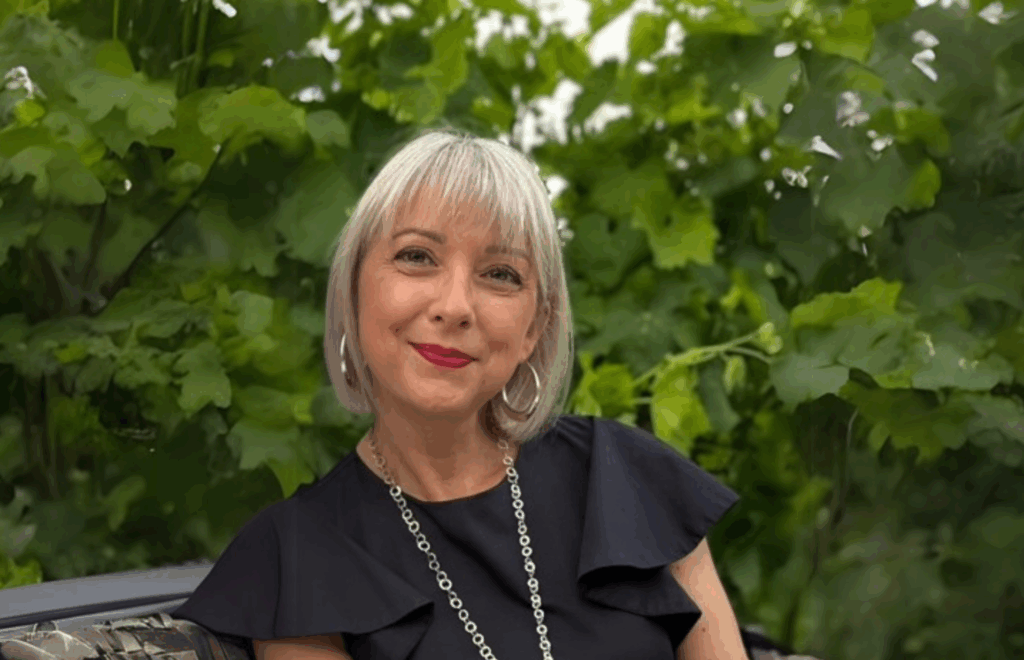Living with the Invisible: My Journey with Osteogenesis Imperfecta and Chronic Pain
May 2025In this interview, led by Matt Bolz-Johnson, ATMP and Mental Health Advisor at EURORDIS-Rare Diseases Europe, Alessandra Tolaccia shares her journey with osteogenesis imperfecta, reflecting on decades of misdiagnosis and dismissal by medical professionals.
She reflects on the relief and complexity of finally receiving a diagnosis for a condition that, while invisible and clinically described as “mild”, profoundly impacts her daily life. Through self-advocacy, community connection, and a commitment to breaking the silence around mental health and chronic pain, she has become a powerful voice for change in the OI community.

Alessandra Tolaccia’s Testimony
For years, I lived with unexplained health issues – fractures that happened too easily, dental problems, hearing loss, fatigue, and a deep, constant pain that no one could seem to explain. It wasn’t until I was 40 years old that I finally received a diagnosis: Osteogenesis Imperfecta (OI) Type 1. While it’s considered the “mildest” form, let me be clear: it might be mild in appearance, but it is far from mild in impact.
Receiving that diagnosis was both a relief and a shock. On one hand, it answered a lifetime of questions. On the other, it opened a door to a new, more complex reality. My condition, like that of many people living with OI, is invisible. I look “healthy.” But the truth is, I live with constant, unrelenting pain; pain that doesn’t go away after fractures heal. It lingers in the muscles, the tendons, the joints, and it quietly shapes every decision I make.
This kind of chronic pain doesn’t just affect the body – it wears down the mind. It invades your mental space, alters your energy, your patience, your confidence. It makes everyday life feel like a marathon. It’s isolating too. Because you don’t look sick, people often don’t believe you and when you try to explain, you feel like you’re constantly having to prove your suffering.
What made it worse was being told, by specialists I trusted, that this pain had “nothing to do with OI.” One rheumatologist even suggested I see a psychiatrist, implying it was all in my head. That moment broke me. I remember stepping outside and bursting into tears in front of my husband – something that’s not like me at all. I felt so unseen, so unheard, and so deeply misunderstood. But in that moment of despair, I chose to act. I started reading medical journals, looking for anything that could validate my experience. That’s when I found a study – conducted in the UK in 2019 – on chronic pain in adults with OI, unrelated to fractures. Finally, I had proof that I wasn’t alone. That my pain was real. That it mattered.
That study led me to a conference in Stockholm where, for the first time, I heard professionals talk openly about pain in people with OI. I cried through the first few hours – not out of sadness, but out of profound relief. I finally felt seen. I finally found others who shared my experience. It was a turning point in my life.
Through conversations with others in the OI community, I realised something else: we’re not talking enough about how this affects our mental health. People feel ashamed, or afraid, or simply don’t know how to express what they’re going through. Sometimes they’re too young and sometimes it’s the parents who are left navigating uncertainty, but behind the silence is real fear, real anxiety, and real emotional pain. We need to break that silence.
It’s not enough for us to quietly endure. When we don’t talk about our pain – physical or emotional – the medical community doesn’t hear us, research doesn’t happen, and the next generation continues to suffer alone. If the prevailing belief is still that pain in OI isn’t real, then families will continue to feel helpless, and industry will never prioritise our needs.
That’s why I got involved in the OI community, as I want to change the narrative. I want our community to know that their pain is real, that they are not alone, and that they have a right to be heard. Talking about these things isn’t a weakness: it’s power that can change lives and effect change. The more we share, the more we understand, and the stronger our impact becomes. If we want the world to take our condition seriously, we have to speak, and I’ll keep speaking until someone listens.
Over the coming weeks and months, EURORDIS will continue publishing testimonies obtained from advocates living with a rare disease who have kindly shared with us their experiences of the impact of having a rare disease on mental wellbeing and their hopes for the future.
If you would be willing to share your own personal story as one of our testimonies please contact Matt Bolz-Johnson, our Mental Health & Wellbeing Lead, at matt.johnson@eurordis.org.
Our last testimony was from Leon Hubbard, who shared his journey with multiple ultra-rare diseases and a life shaped by medical uncertainty.
Visit our Mental Health & Wellbeing webpage to read upcoming articles from our series of testimonies.
